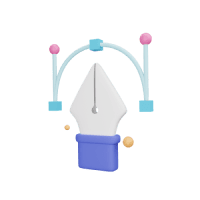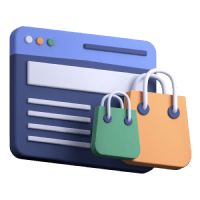
A discussion on net neutrality.
Today is the age of digitisation and none of us can even imagine our lives without the presence of the internet. There is a whole Revolution going on in the field of technology with artificial intelligence, machine learning, Quantum computing and many more new inventions and applications of technologies.
One could say that the second most significant feature of the world today is the presence of democratic governments. Democracy is a worldwide accepted phenomenon with all major developed countries sporting this kind of government. It is a democratic government’s priority to ensure its citizens get equality in opportunity.
Various International covenants like the United Nations Human Rights Declaration have accepted that in today’s world, the internet is a major facilitator of education and knowledge. Your access to the internet determines your future. This was especially true during the COVID-19 lockdown. Access to the internet greatly determines your well-being- be it work from home or online School. People who did not have access to the internet and smartphones suffered during that period. This phenomenon is called the digital divide: It is a phenomenon when a section of the population faces a gap in access to technology and as a result suffers in their economic development.
Since democracies are focusing so much on technology and the internet, a term called “net neutrality” has gained a lot of prominence. Before we delve into the net neutrality debate, let’s understand what it refers to.
Net neutrality is the principle that all internet access should be given equal treatment, free and fair reception and reach. On the access to the Internet, no website or company should be given preference over the other. All pages should have an equal chance of getting accessed.
Net neutrality has three components
a) No blocking
b) No paid preference
c) No throttling
Net neutrality is often expected from the government because these kinds of powers to block and limit access to the internet are possessed by the government only. Democracies all around the world must ensure free and fair access to the Internet for all of their citizens. This debate is often had in the context of pseudo-democracies or autocratic governments. To promote their own indigenous companies and ideologies, autocratic governments resort to restricting information on the internet. This can also be considered as a blockade to the freedom of speech. This also limits media engagement with the citizens. For example, let’s say there was a poisonous gas leak from a government factory and the government blocked all the websites that reported about it. In this way no one would be able to come to know about the accident and the government would not have to answer to anybody. This kind of behaviour is witnessed now and then in countries where the media is not free and fair.

There are less extreme examples as well. Governments find ways to practise internet discrimination even in democracies.
Partiality with ISPs: By restricting competition among ISPs, governments can reduce the incentives for ISPs to adhere to net neutrality principles. In regions with limited ISP choices, customers may have fewer alternatives if their provider engages in non-neutral practices.
Punishing some ISPs: Governments can pass laws or enact policies that explicitly permit or even encourage discriminatory practices by ISPs. These laws can undermine the core principles of net neutrality.
Unfair judgements by regulatory bodies: In some cases, governments can influence regulatory agencies responsible for overseeing the telecommunications industry. Political appointments and pressure on these agencies can lead to decisions that favour ISPs over net neutrality.
Supporting zero rating: Some governments may allow or even encourage zero-rating practices, where certain services or content are exempt from data caps. While this can be seen as beneficial to consumers in the short term, it can harm net neutrality by giving preferential treatment to specific services.
Weak enforcement of laws: Even if there are net neutrality rules in place, governments can choose not to enforce them effectively. Inadequate enforcement can allow ISPs to violate net neutrality principles without facing consequences.
The concept of net neutrality has been a subject of debate and policy discussions for years. Supporters argue that net neutrality is essential to protect innovation, competition, and free expression on the internet. They believe that without net neutrality, ISPs could potentially control which websites and services succeed or fail by giving preferential treatment to their services or those of partners.
Opponents of strict net neutrality regulations argue that ISPs should have more flexibility to manage their networks and potentially offer specialized services or prioritize certain types of traffic for the benefit of customers. They argue that excessive regulation could stifle investment in broadband infrastructure.
Net neutrality regulations have varied from country to country. In the United States, for example, there have been changes in net neutrality rules with shifts in administrations and changes in Federal Communications Commission (FCC) policies. Other countries have implemented strong net neutrality regulations to ensure an open and neutral internet.
The debate over net neutrality continues to evolve as technology and the internet landscape change. It remains an essential topic with implications for internet users, content providers, and the future of the digital ecosystem.
Public awareness and advocacy are crucial in influencing government decisions regarding net neutrality. Advocacy groups, internet activists, and concerned citizens often work to raise awareness of the importance of net neutrality and lobby for policies that protect it. Ultimately, the regulatory landscape for net neutrality can change over time due to shifts in political, technological, and economic factors.




















